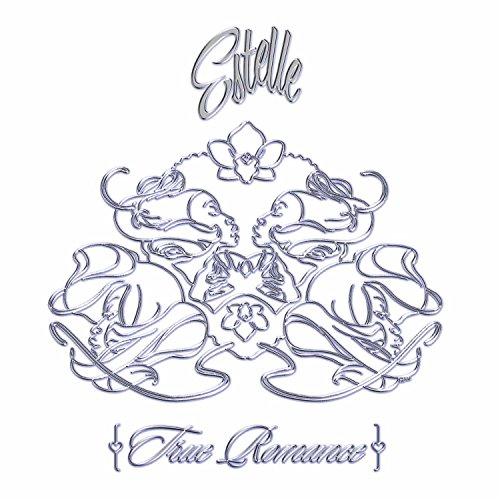
Estelle
True Romance
Release Date: Feb 17, 2015
Genre(s): R&B, Pop/Rock, Adult Contemporary R&B, Contemporary R&B
Record label: Established 1980
Music Critic Score
How the Music Critic Score works
Buy True Romance from Amazon
Album Review: True Romance by Estelle
Fairly Good, Based on 9 Critics
Based on rating 3.5/5
True Romance finds one-time R&B It girl Estelle jumping record labels for the third time in 10 years, to her own boutique New London Records. Written after ending a four-year relationship, it also puts a fresh spin on the typical breakup album, representing a decisive end to not only a love affair, but to a decade of trying to turn the success of her Grammy-winning single, “American Boy,” into a viable mainstream career. Singing big string-laden power ballads, flexing her often-underutilized rap cadence over patient house grooves, and unapologetically indulging her distinctive genre tastes, True Romance largely proves that Estelle's talents were being too encumbered by the demands of record execs and producer John Legend, delivering a fleet 45 minutes of music that sounds more true to her West London upbringing.
Based on rating 6.9/10
Estelle’s latest record True Romance offers something new in the singer's career: a cohesive album experience. The follow-up to 2012’s All of Me is a chronicle of love anchored by four themes—"passion, courage, bullshit, and true romance"—though it sticks to this blueprint at the risk of losing some of the idiosyncrasy that gave her previous works character. All of Me and her debut album Shine incorporated many different elements—Estelle experimented with rapping, boom-bap, reggae.
Based on rating 6/10
“I got somethin’ good for ya, baby,” Estelle declares on a rompin’, house-style “Somethin’ Good/Devotion (Passion Interlude)”. It’s the third track on her 2015 outing True Romance, and it’s sporting more than just a cumbersome title. It’s so reminiscent of one Cecelia “CeCe” Peniston, especially her hit single “Finally”—right down to the keyboard and horn stabs—that it’s hard to believe True Romance didn’t somehow escape from a vault of unreleased albums from the early 1990s.
Based on rating 6/10
More concise than her three previous albums but just as varied as any of them, True Romance is Estelle's first independent full-length after phases with V2 and Atlantic and a 2013 trio of themed EPs. Five of these 11 tracks were issued separately, several months ahead of the album's February 2015 release date. Among these are some of her boldest songs, like "Make Her Say (Beat It Up)" -- all pummeling drums, sub-bass, and Estelle's droning commands, vulgar enough to purge a certain portion of her fan base.
Based on rating 3/5
In 2008 — the same year another one-name British soul-pop singer called Adele arrived — Estelle made her own splash with "American Boy." Although her fourth LP lacks a killer Kanye collaboration like that one, she doesn't need it. Tracing the stages of a relationship, the album is split into themes including courage, passion and (of course) true romance. It's a loose concept, but it delivers: "Something Good" keeps the Nineties-house revival pumping, while "Silly Girls" is Seventies slow-jam sumptuousness.
Based on rating 3/5
The U.K. has a soul history of its own. British-born Estelle’s new album does more to remind us of that than any work in recent memory. “True Romance,” the singer’s fourth album, spins through a rash of different takes on soul, all of them more informed by London and Manchester than Memphis or Detroit.
Based on rating C-
With her fourth album, British singer/rapper Estelle postures as a Beyoncé-type figure and fails to achieve comparable results. Clunky songwriting and mediocre lyrics sink an album full of strong production choices and prove that Estelle is unlikely to claim anything more than a spot as the JV Bey. True Romance isn’t going to help Estelle’s quest to remove herself from the one-hit wonder category (and “American Boy” sure was a hit).
Opinion: Very Good
“Conqueror,” the breakout empowerment anthem from Brit soul singer-songwriter Estelle’s third record, is an obvious crossover move with a broad, play-to-the-rafters chorus. It’s also one of the least interesting songs she has produced; luckily, it’s an anomaly on a disc dominated by more intimate tracks stamped with Estelle’s personality. The 11 musically diverse songs are preoccupied with love, sex, and the collateral damage of bad relationships.
Opinion: Very Good
A little too dignified for radio’s moist come-ons, a little too loose for R&B classicism, Estelle has never made it fully clear, in a decade-plus career, whether she was a dissenter, an aspirant, a traditionalist or something else altogether. As a result, she’s been pleasant, but not essential, a singer living between defined worlds. But that sort of back and forth has become its own narrative.
'True Romance'
is available now

